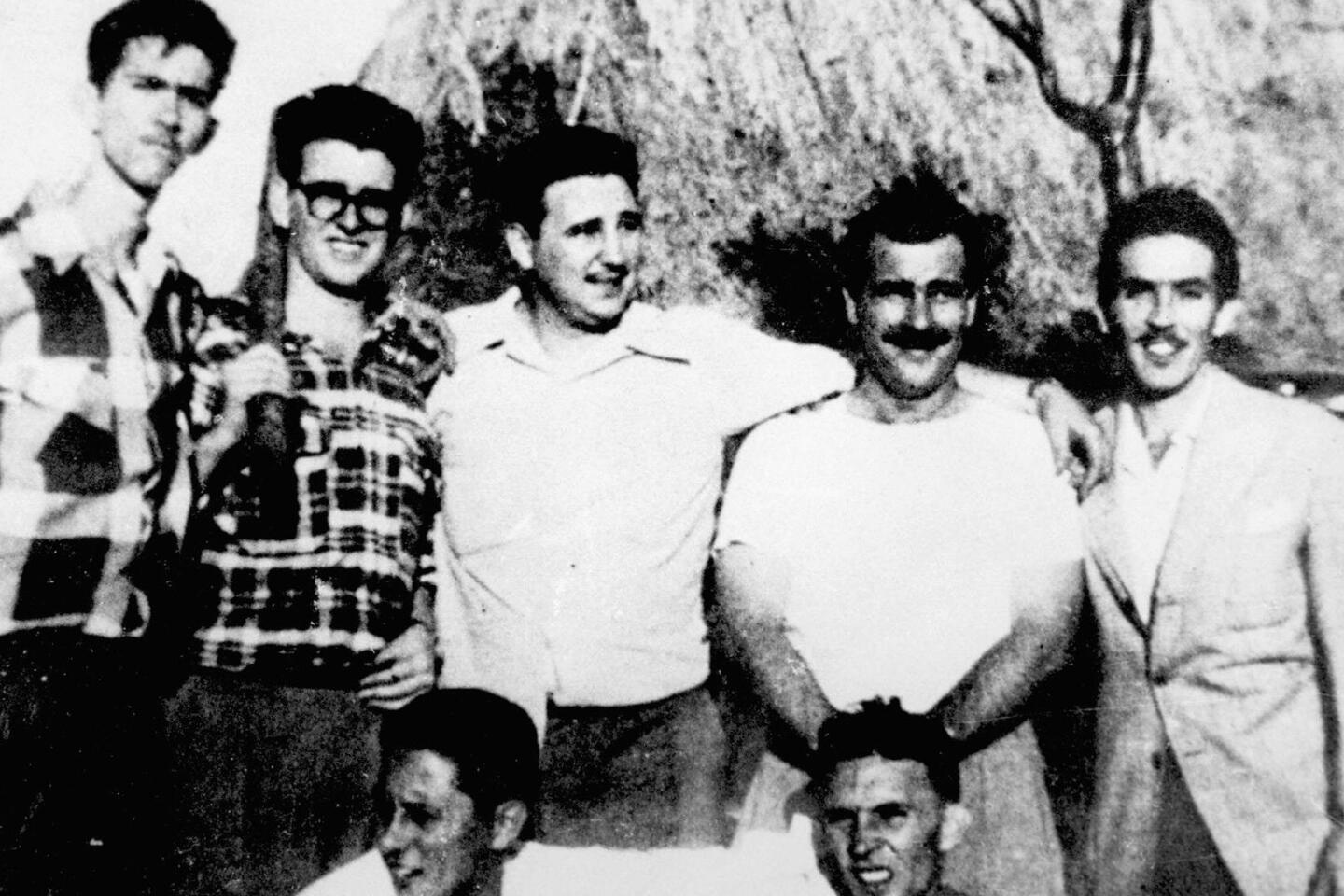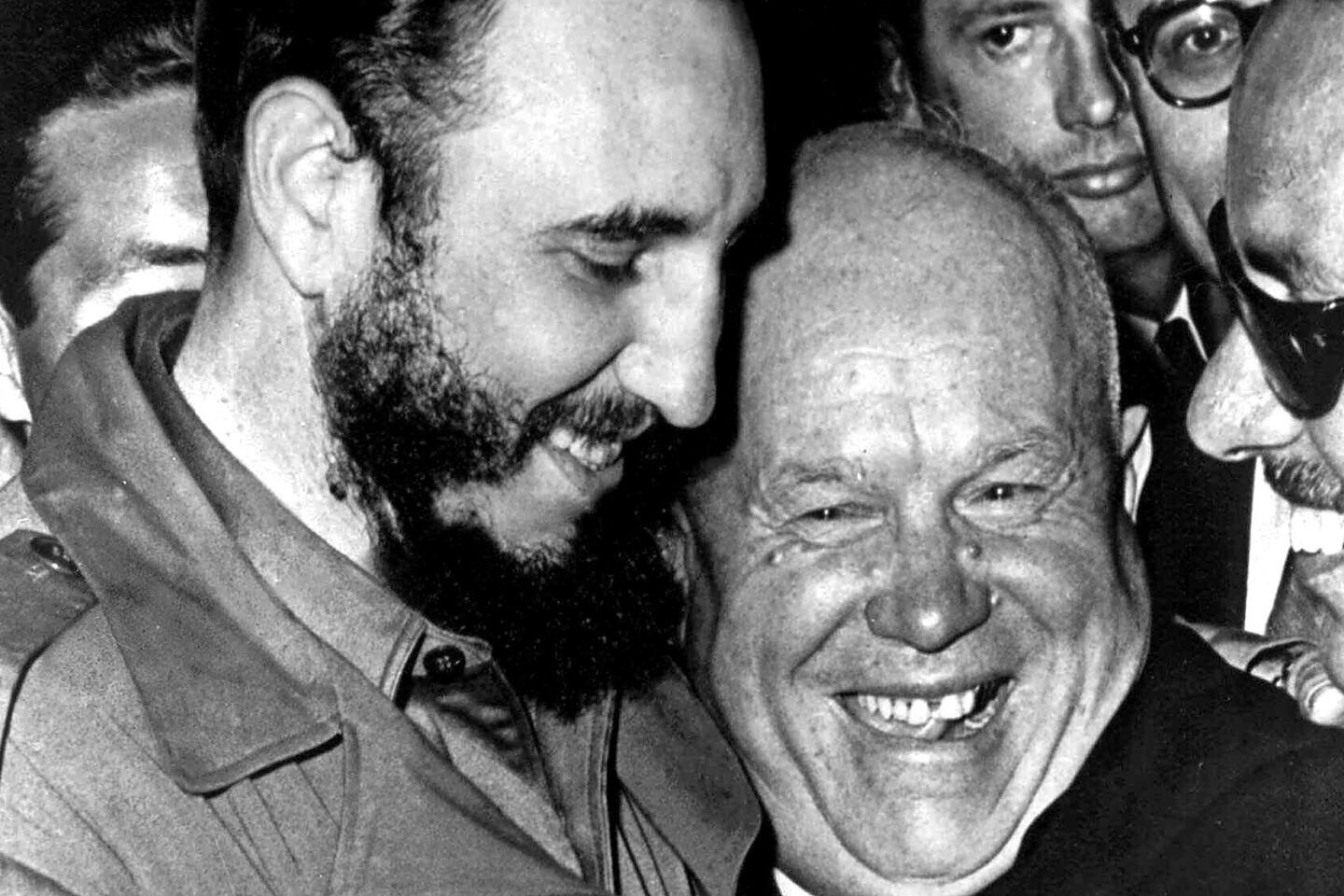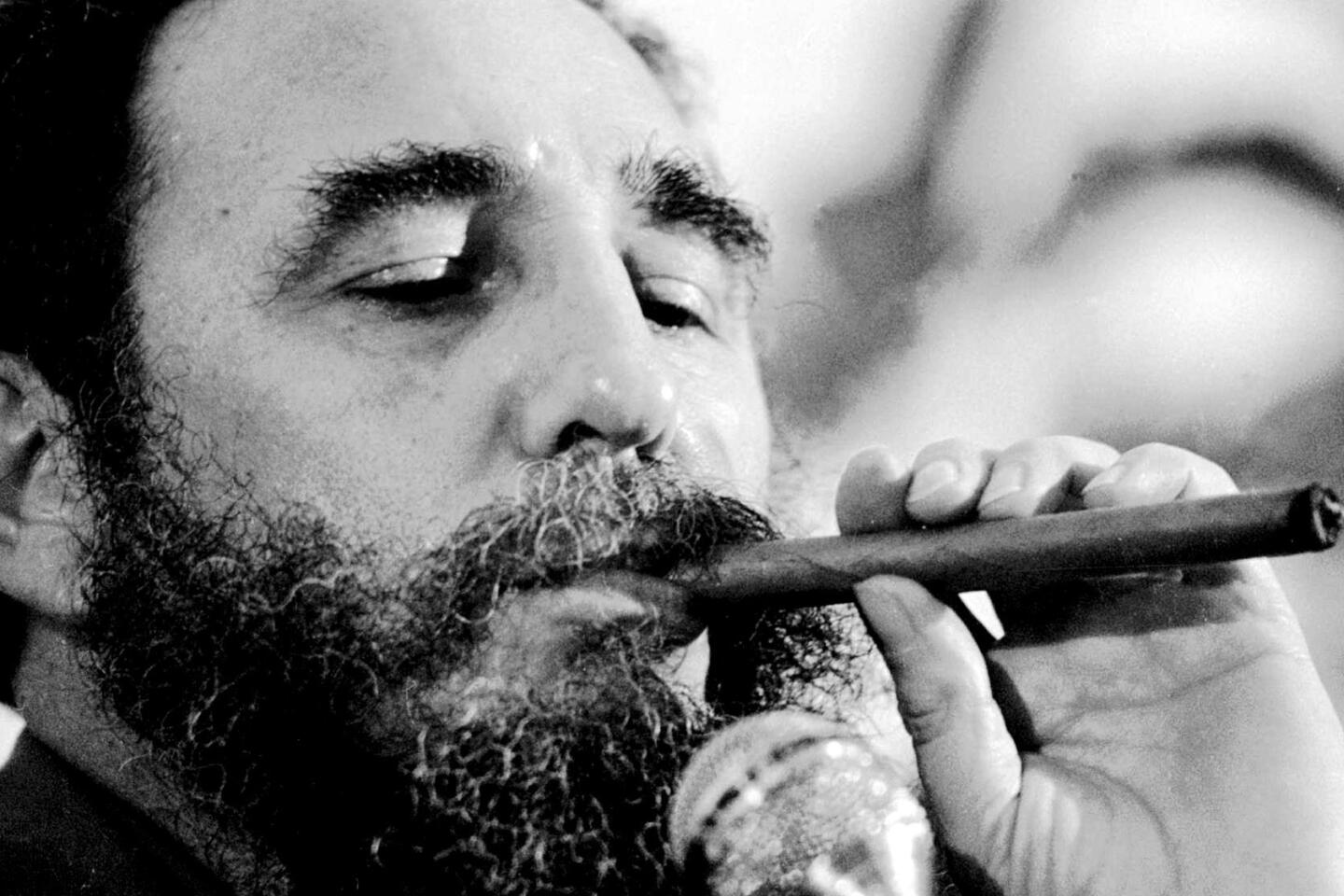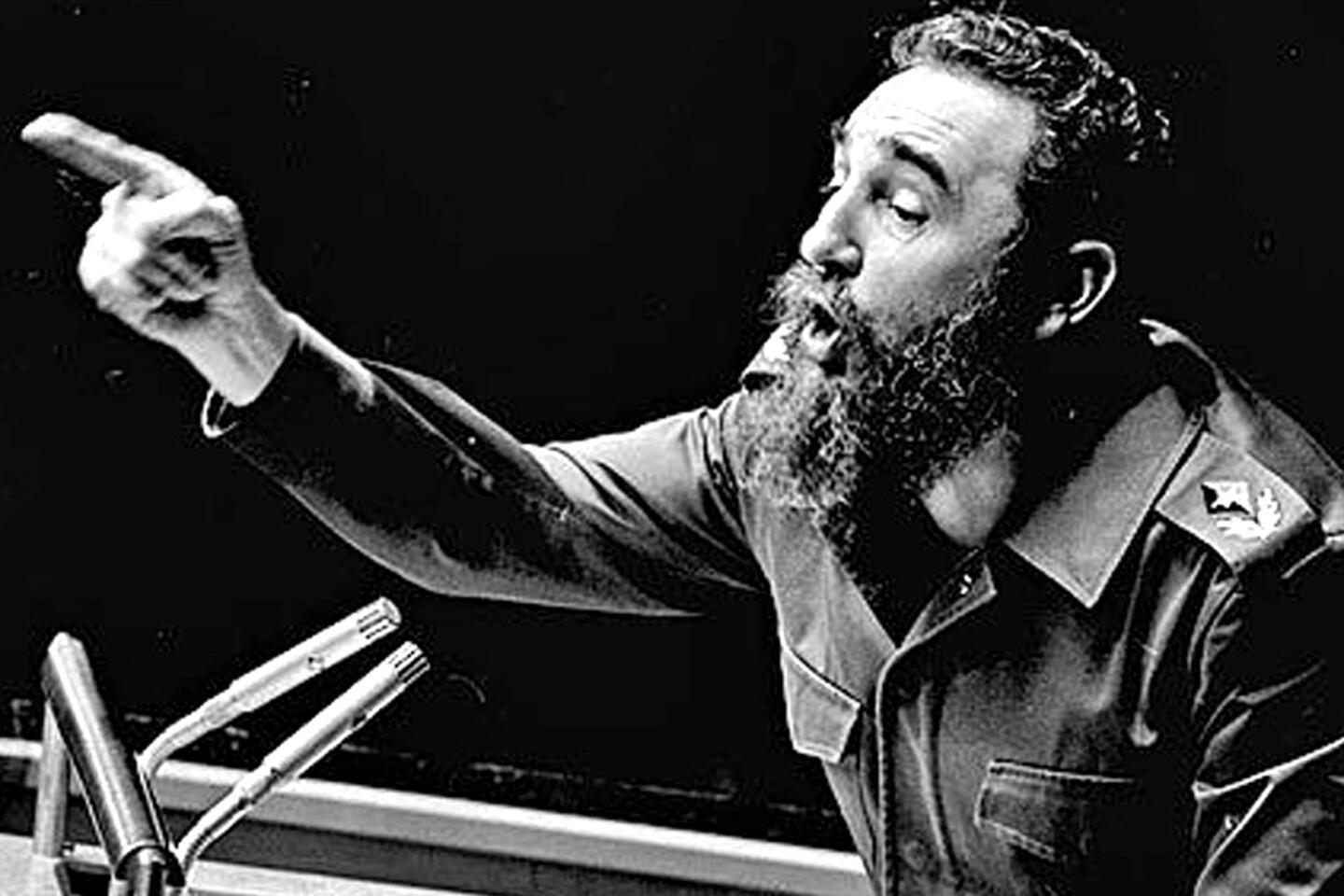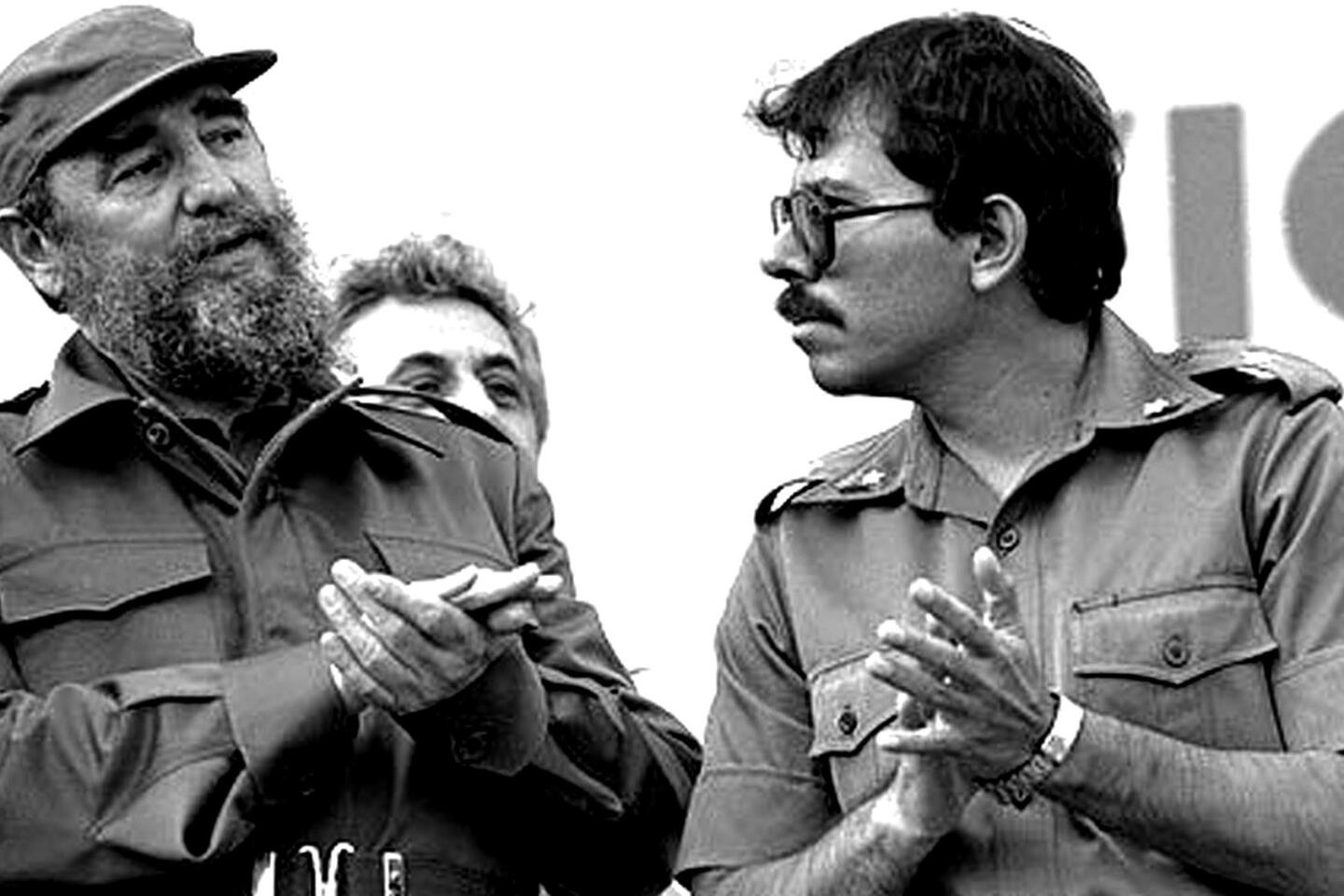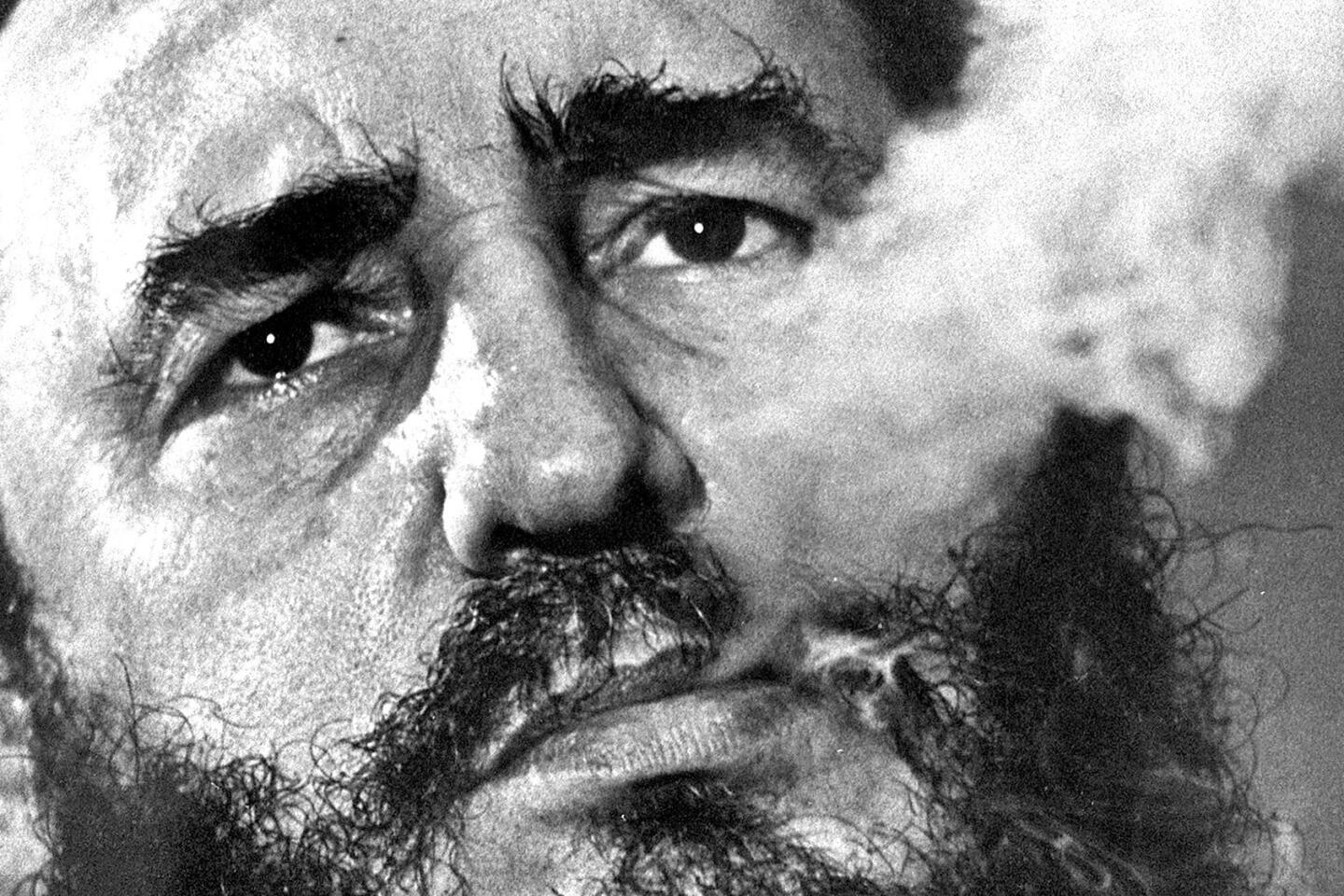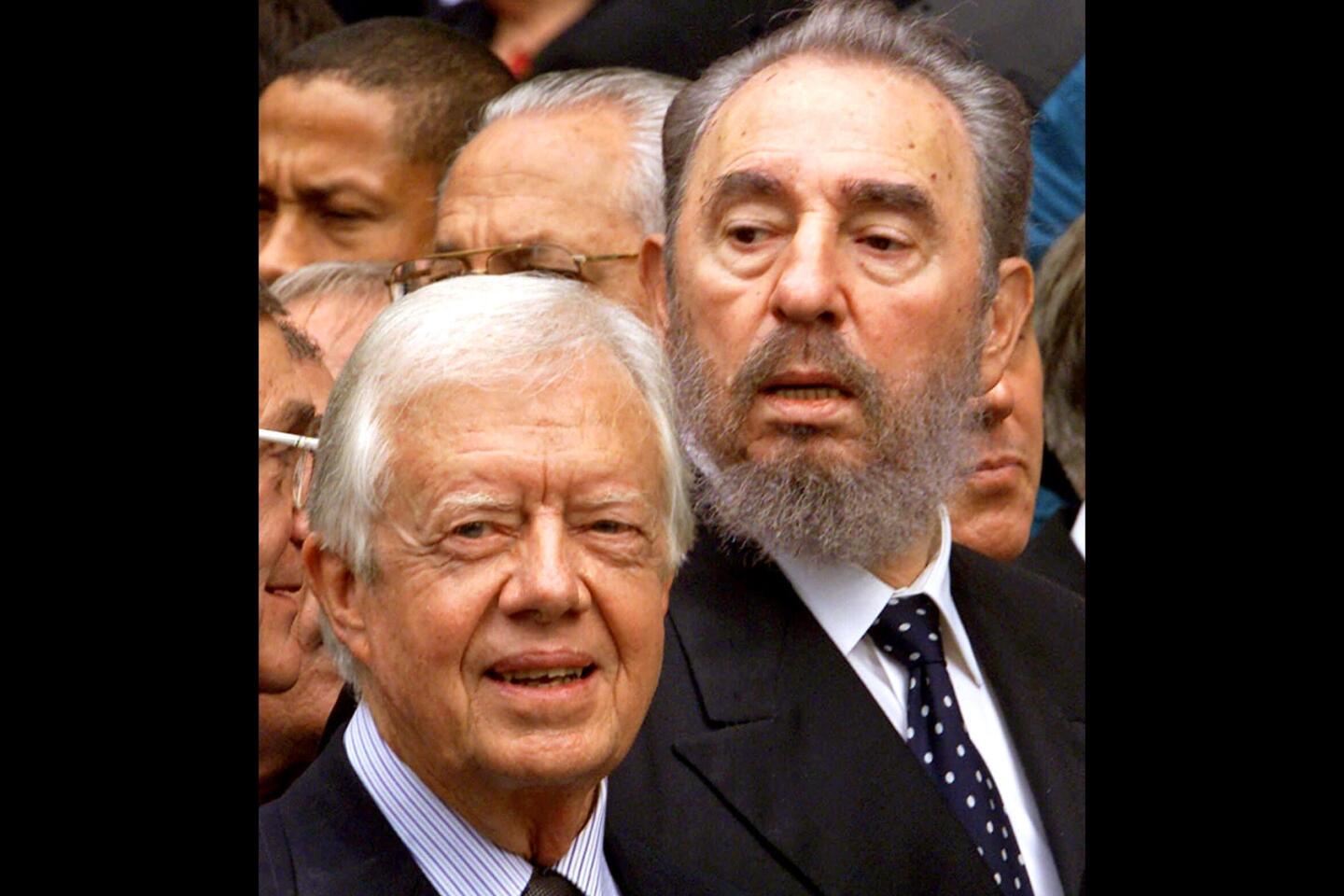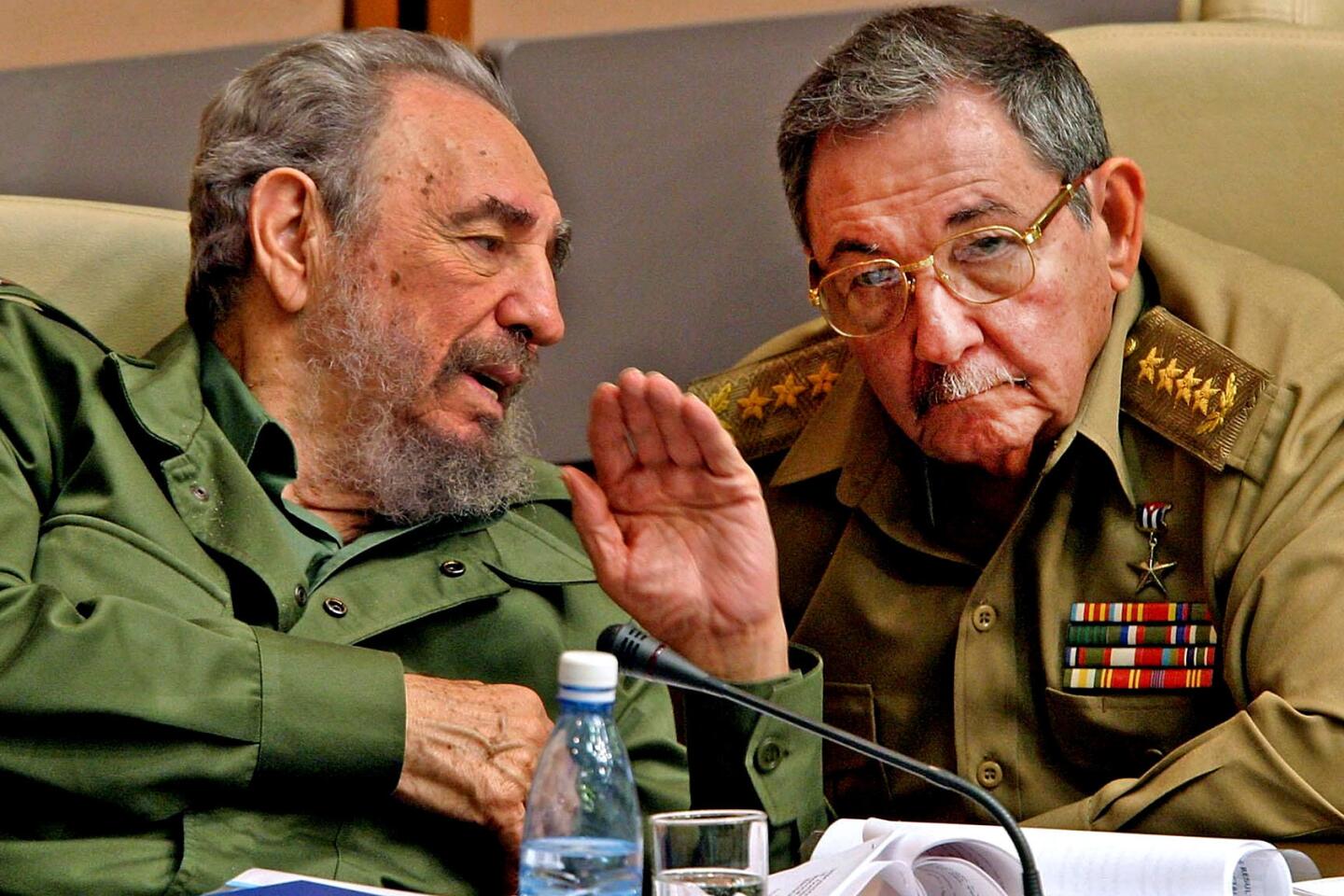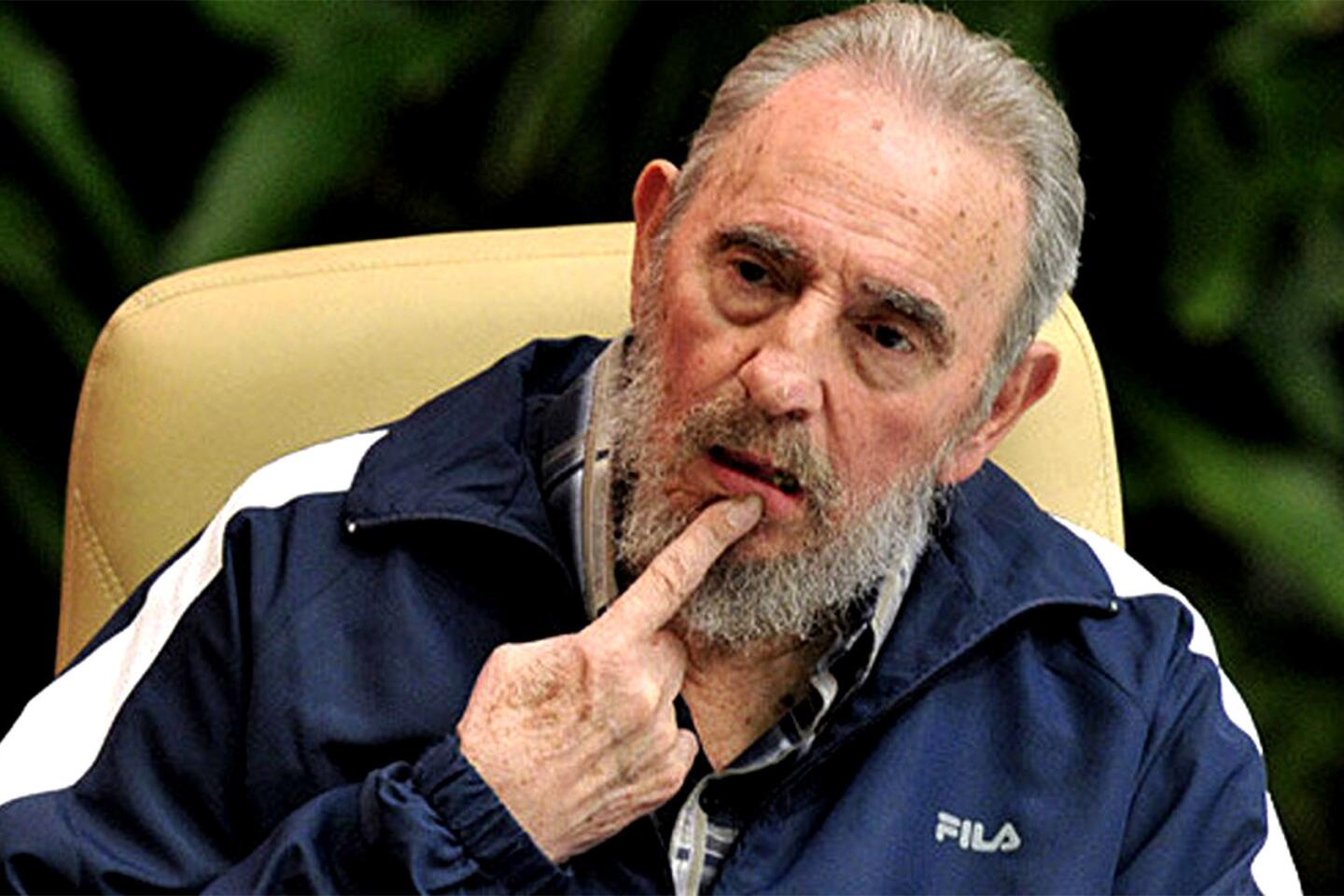History will judge Castro’s era, Obama says, as world leaders react to former Cuban leader’s death
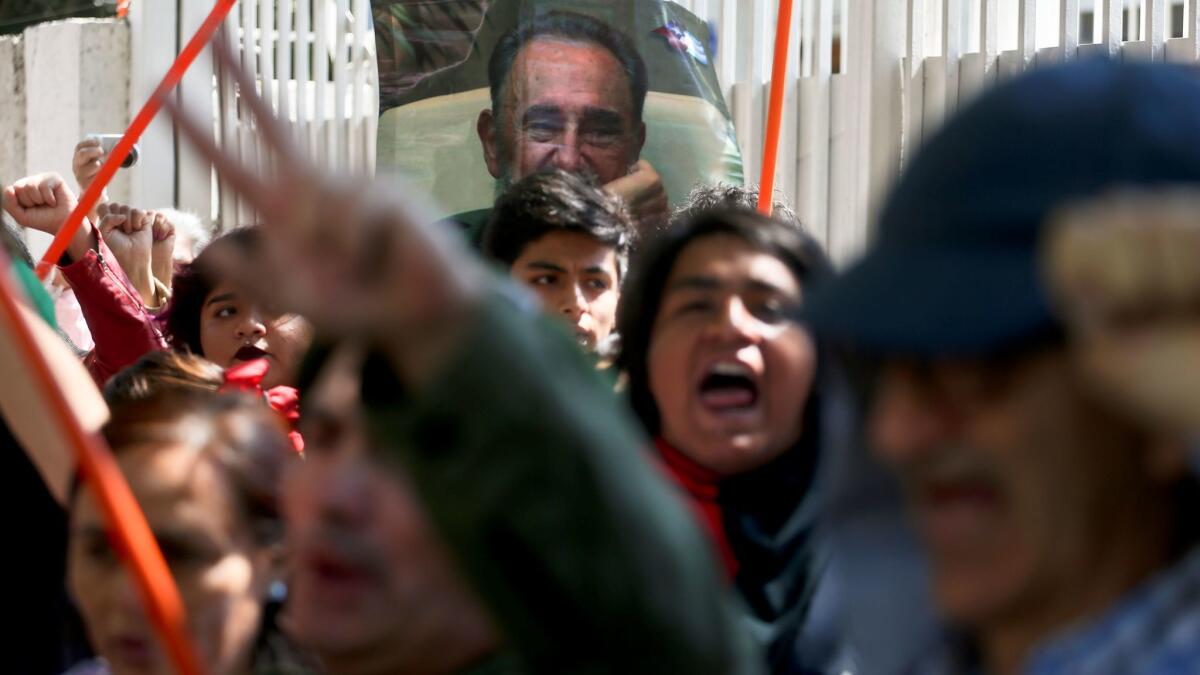
- Share via
Reporting from Washington — The death of Fidel Castro was long in coming, so world reaction was somber and introspective from foes and friends alike.
One exception came from U.S. President-elect Donald Trump, who cited the “passing of a brutal dictator” and added that “Cuba remains a totalitarian island.”
He described Castro’s legacy as one of “firing squads, theft, unimaginable suffering, poverty and the denial of fundamental human rights.”
Trump’s future policies toward Cuba, and whether he continues with diplomatic normalization with the Communist-led government, are a matter of much speculation. He has said he would toss out Obama administration reforms that opened economic and diplomatic ties with Havana as well as saying he would merely modify them. He suggested Saturday he was open to a “journey towards prosperity and liberty.”
President Obama alluded to both the history of animosity between the United States and Cuba and the advent of landmark change in those relations. Obama said he extended “a hand of friendship to the Cuban people.”
For more than half a century, Obama recalled, the relationship “was marked by discord and profound political disagreements.” But, he said, “we have worked hard to put the past behind us,” pursuing instead a future based on shared familial, cultural and commercial bonds.
“We know that this moment fills Cubans — in Cuba and in the United States — with powerful emotions,” Obama said. “History will record and judge the enormous impact of this singular figure on the people and world around him.”
Secretary of State John F. Kerry, who raised a U.S. flag over the American Embassy in Havana last year for the first time in nearly five decades, said the U.S. had “an earnest desire not to ignore history” but to “write a new and better future for our two peoples.”
Russian President Vladimir Putin praised Castro as a “sincere and reliable friend of Russia.”
“The name of this distinguished statesman is rightly considered the symbol of an era in modern world history,” Putin said in a telegram to Fidel’s brother, President Raul Castro, according to the Kremlin.
The Soviet Union for decades was Cuba’s main Cold War supporter and financial patron. When the Soviet Union collapsed, so did Cuba’s economy, plunging the country into what Cuba called a “special period” of hardship that derailed many of the social reforms of the revolution.
The last leader of the U.S.S.R., Mikhail Gorbachev, praised Castro for standing up to the U.S., even though it brought the planet to the brink of another world war.
“Fidel held his ground and strengthened his country at the time of the harshest American blockade, at the time of massive pressure on him,” Gorbachev was quoted as saying by Russia’s Interfax news agency.
“Nevertheless, he led out his country from the blockade to the path of self-sustained and independent development.”
Not surprisingly, the warmest words of condolence came from leftist governments and nations were Cuba once participated in so-called liberation struggles.
Recalling Castro’s close relationship with South Africa’s late president, Nelson Mandela, and support for the fight against apartheid, the country’s current leader, Jacob Zuma, thanked Castro for inspiring his people “to join us in our own struggle.”
Chinese President Xi Jinping hailed Castro’s role in spreading communism in the world and lamented the loss of “a close comrade.”
No Latin American government revered Castro more than that of socialist Venezuela. Its previous president, the late Hugo Chavez, was an apprentice of Castro’s, and current President Nicolas Maduro has exhibited the same dedication.
“We will keep on winning and keep fighting,” Maduro said on Venezuela’s Telesur television. “Fidel Castro is an example of the fight for all the people of the world. We will go forward with his legacy.”
Before the devastating economic crisis that hit Venezuela, the oil-rich country routinely provided billions of barrels of petroleum to Cuba and other friendly nations at cheap rates. Cuba, in exchange, sent doctors and teachers, as well as intelligence agents, to work in Venezuela.
Latin American leftists leaders such as Maduro, but also the presidents of Ecuador, Bolivia and El Salvador, are in many ways one of Castro’s most tangible legacies. Their ascension to power through democratic means might not have happened were it not for political movements against the right-wing dictators who had long held sway in the region.
“One of the greats has left us,” Ecuador’s president, Rafael Correa, said. “Fidel has died. Long live Cuba! Long live Latin America!”
In El Salvador, the fight was an armed one. The tiny Central American country was engulfed in one of the Cold War’s most important proxy wars in the 1980s, when Cuban and Soviet-backed leftist guerrillas of the Farabundo Marti National Liberation Front (FMLN) battled security forces loyal to the rightist, U.S.-backed government.
A U.N.nited Nations-brokered peace agreement eventually ended that war, which killed tens of thousands and sent millions of refugees to California and other parts of the U.S. Today the FMLN holds the presidency.
The Salvadoran government Saturday expressed “eternal gratitude” to Castro and the Cuban people for their help.
Elsewhere in the West, where Cuba has long enjoyed better relations than with Washington, reaction was tempered.
Castro embodied Cuba’s revolution in both its “hopes” and its later “disappointments,” French President Francois Hollande said.
Boris Johnson, Britain’s foreign minister, said Castro was “historic if controversial.” His death “marks the end of an era for Cuba and the start of a new one for Cuba’s people” that Johnson said should include improvement of human rights.
In Canada, Prime Minister Justin Trudeau recalled his father’s friendship with Castro. Pierre Trudeau, prime minister from 1968 to 1984, was the first Western leader to visit revolutionary Cuba, in 1976, and Castro served as an honorary pallbearer at the elder Trudeau’s funeral in 2000.
“While a controversial figure,” Justin Trudeau said, “both Mr. Castro’s supporters and detractors recognized his tremendous dedication and love for the Cuban people who had a deep and lasting affection for ‘El Comandante.’ ”
For more on international affairs, follow @TracyKWilkinson on Twitter
Special correspondent Christopher Guly in Ottawa contributed to this report.
Also:
Fidel Castro dead at 90: The revolutionary icon’s influence was felt far beyond Cuba
Trump promised to be ‘unpredictable’ in foreign policy. How will that work?
For first time, U.S. abstains in U.N. vote to lift Cuba embargo
More to Read
Sign up for Essential California
The most important California stories and recommendations in your inbox every morning.
You may occasionally receive promotional content from the Los Angeles Times.
